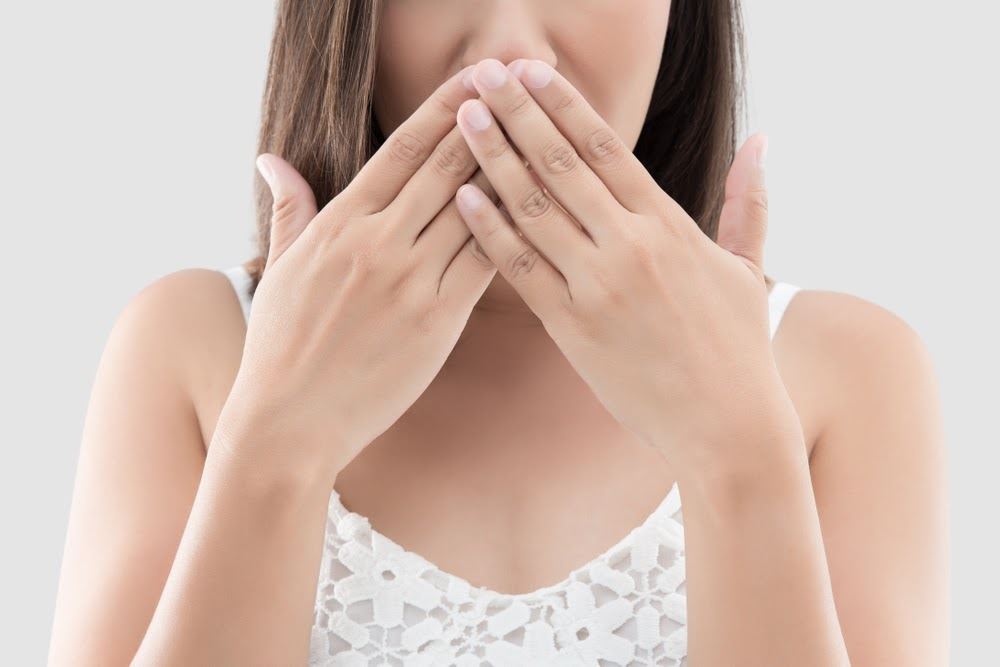 We’ve all been there. Hand over your mouth when you speak to people; breathing into your hand and testing it before openly talking in social events. Don’t feel bad. Sometimes, gums, mints, even brushing won’t do the trick 100% of the time. Rest assured, though, you aren’t the only one struggling with this condition.
We’ve all been there. Hand over your mouth when you speak to people; breathing into your hand and testing it before openly talking in social events. Don’t feel bad. Sometimes, gums, mints, even brushing won’t do the trick 100% of the time. Rest assured, though, you aren’t the only one struggling with this condition.
Bad breath is so common that it’s difficult to decide who is normal between those who have it or those who don’t. Bad breath, also referred to as oral malodor or halitosis, is so common a problem that an estimated couple billion dollars are spent on products to control this widespread condition. Of the 50% of the adult population affected, 90% of the odors were found to be of oral causes. So many times, an experienced dentist is called upon to properly diagnose and treat those affected by this condition.
So, what doesn’t work?
Like with most conditions that exist right now, there are countless myths and farfetched “remedies” that aren’t necessarily effective as much as they are just placebo effects, and in the world of oral health, this is no different. Advertised products we see and hear about all the time simply try to mask the oral malodor with minty and fruity scents, which most of the time makes the odor much stronger and easier to pick up. Mouthwash, mints, and gum are not strong enough to combat the foul-smelling volatile sulfur compounds (molecules primarily responsible for oral malodor). At this moment, I’m sure many of you are right now breath-testing yourselves to see if you may be one of those halitosis-having individuals.
Well, don’t bother.
A common trend found amongst these cases is that an individual with this breath condition can’t self-diagnose. People with a normal sense of smell usually become desensitized to their own stimulants. A big number of people afflicted with halitosis don’t know they even have bad breath most of the time unless a kind individual around them happens to inform them, and we all know how embarrassing that can be.
Being lazy about your oral health doesn’t help either, so if you’re thinking of simply rinsing your mouth out with water and calling it a day will do the trick, I’ve got news for you.
 Can Conditions Lead to Bad Breath?
Can Conditions Lead to Bad Breath?
In essence, yes. Reduced salivation resulting from dry mouth, or xerostomia, has been said to make one’s halitosis even more evident and easier to pick up. Dry mouth as a result of mouth breathing, or a side effect of many medications, can also play a part in the cause of bad breath.
Of course, there are other oral factors that can be the root of bad breath. These factors include food stuck between teeth (like those pieces of popcorn your tongue just can’t get to), faulty restorations, infections of the throat, bacteria caught within the crypts of your tonsils, and dentures in need of cleaning. Using tobacco products will also leave your breath a little less than desirable, and also contribute to poor dental and oral hygiene. If you run mainly on caffeine, that early morning cup o’ joe can also lead to strong breath. Some non-oral causes may include:
- postnasal drip
- diabetes mellitus
- kidney failure
- infections of the upper respiratory tract
- and sulfur-rich foods such as garlic and onions
How Do We Prevent Bad Breath?
So, what can we do to fix it or better contain it? Honestly, a tried-and-true way to effectively manage oral malodor is by practicing a proper oral hygiene routine, regularly scheduled dental cleanings, and a mental note to always brush your tongue after you’ve brushed your teeth in the morning and at night. The tongue is the most retentive surface in your mouth and will naturally hoard bacteria within its Velcro-like surface like a lint roller.
Sugar-free sour candies help in the production of your salivary flow while having a bottle of water on you while you walk or do daily activities will help keep your mouth hydrated. Keep in mind, mints and mouthwashes will cover the smell for a short while before the effects wear off. In order to eliminate or better control your halitosis, consult with your dentist for a thought-out treatment for bad breath management.
Treatments for Halitosis
A professional dentist will set you up with a guideline to aid you in proper oral hygiene. This way, daily bad breath becomes much more manageable and you can skip the breathe-into-your-hand-and-sniff test before talking to someone. An effective halitosis treatment can include different types of solutions, such as laser treatment for bad breath, tongue scraping, and other procedures a specialist can inform you about. However, as mentioned before, having a proper and consistent oral hygiene routine will work wonders. Your dentist will ensure you get on the right path to good oral health during your consultation.

